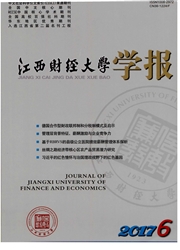

 中文摘要:
中文摘要:
人民调解制度在形式上与传统民间调解存在差异,但就其调解工作范围和依据而言,它确是从中国传统民间调解制度演变而来的。处于变迁中的基层农民对人民凋解存在需求,这为人民调解制度提供了生存空间,而人民调解制度也需要针对地方性特性做出制度调适。本研究在对渝东南地区的田野调查基础上,从社会关系、经济资本、法律资源等方面对基层农村对人民调解的需求因素进行了分析,进而以渝东南地区的人民调解制度实践——调解大院为例,分析了农村地方性知识在基层人民调解制度实践中的应用。研究发现,在情感性因素与生计理性的作用下,村民具有维护社会关系的需求。由于人民凋解制度与农民维护社会关系的需求的适应性,人民调解制度在基层农村有巨大的生存空间。另一方面,人民渊解又是村民基于经济资本与法律资源的弱势地位作出的被动选择。针对山区的聚落特征、村落社会关系和农民的意义体系,人民调解机构做出了人民调解地方性的制度回应——“调解大院”,将人民调解制度融入村落的生活逻辑之中,但却没有对农民在经济资本与法律资源方面的弱势地位作出回应。基于研究发现,本文最后对国家农村社会管理体制的发展路径做出了思考。
 英文摘要:
英文摘要:
There are differences in form between the people's mediation system and traditional folk mediation. However, in terms of its scope and basis, people's mediation has actually evolved from the traditional Chinese folk mediation system. In a changing world, grassroots farmers place demands on this form of mediation that provide it with a space for existence. At the same time, the system needs to make institutional adjustments in response to local features.On the basis offieldwork in Southeastern Chongqing, this study analyzes the demand factors among farmers at the grassroots level from the point of view of social relations, economic capital and legal resources, Furthermore, taking the practice of the people's mediation system in Southeastern Chongqing--the "mediation courtyard"--as an example, we analyze the application of local knowledge to people's mediation practice at the grassroots. Our study found that under the influence of emotional factors and livelihood rationality, the villagers demand that social relations be maintained. Since the people's mediation system aecommodates this demand, it has ample room for existence in the villages. On the other hand, people's mediation is a passive choice to which villagers are driven because of their lack of economic capital and legal resources. In response to the settlement features of mountainous areas and village social relations and systems of meaning, the people's mediation body took institutional measures to localize mediation (the mediation courtyard), integrating the people's mediation system into the logic of village life; but it failed to respond to the problems caused by farmers' disadvantage in relation to economic capital and legal resources. On the basis of our research, we end with some reflections on a developmental path for national systems for the management of village society.
 同期刊论文项目
同期刊论文项目
 同项目期刊论文
同项目期刊论文
 期刊信息
期刊信息
